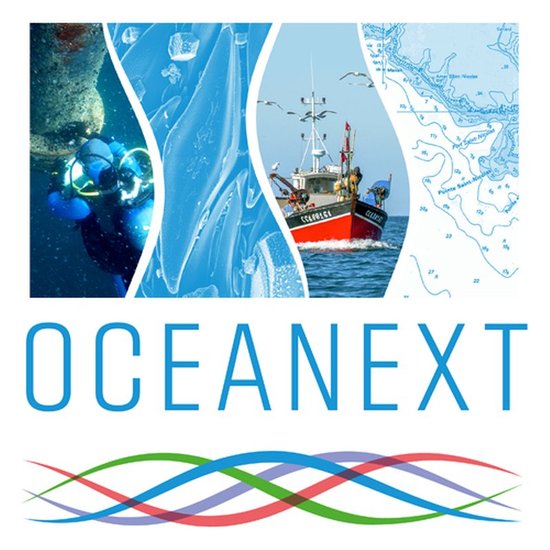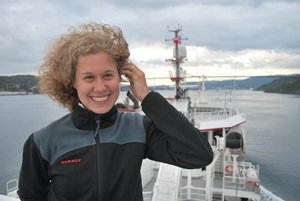Conférencier invité : Dorothy DANKEL

Dorothy DANKEL will present a plenary session named:
Transdisciplinary insights into Integrated Ecosystem Assessments:
What they are, what they can be, what they should be
“Integrated Ecosystem Assessments are scientific frameworks that synthesize data to inform policy decisions. Today many science institutions develop and conduct Integrated Ecosystem Assessments as the integral tool of ecosystem-based management. However, the scholarship on the role of Integrated Ecosystem Assessments in policy and how these assessments can or cannot spur political actions remains at best fragmented, and the actual use of Integrated Ecosystem Assessments in policy processes is not fit for purpose.
The state-of-the-art of Integrated Ecosystem Assessments is pointing strongly in the direction of a push towards a “technological lock-in” where quantitative modelling is the method of choice. Experiences show that once a technology process is locked-in, any efforts to reform will be an uphill battle (i.e. the use of gas-powered automobiles for personal transport). If Integrated Ecosystem Assessments are to be designed for high credibility, legitimacy and societal saliency, a combination of quantitative and non-quantitative disciplines needs to be integrated early-on in the process. Since a common framework for Integrated Ecosystem Assessments in Europe is still lacking, there is an urgency to define how they should work to reach the transdisciplinary potential with an impact on sustainable actions. How can procedures for Integrated Ecosystem Assessments, the core tool linking the implementation of policy objectives and knowledge for marine ecosystem-based management, be designed to be credible, legitimate and salient?
In her Keynote address, Dorothy Dankel will outline some insights learned from collaborative projects in Responsible Research and Innovation (RRI) and provide a new interdisciplinary examination of how Integrated Ecosystem Assessments are currently conducted. In addition, she will demonstrate how Social Network and Cultural Consensus Analyses with linguistic methods, gender perspectives and philosophy of science can be applied to carefully examine and analyze Integrated Ecosystem Assessments.”
Join OCEANEXT from now by consulting the list of sessions and submitting your abstract
Dorothy J. Dankel (36) is an early career researcher with an interdisciplinary marine science background. She incorporated a variety of scientific themes in her Ph.D. thesis “Building blocks of sustainability in marine fisheries management” including numerical modeling of marine fisheries strategies using harvest control rules.
After her specialization in marine fisheries management with research stays at the University of Massachusetts, Dartmouth, School of Marine Science and Technology (SMAST) and the International Institute for Applied Systems Analysis (IIASA) in Austria, Dankel began research at the Faculty of Humanities at the University of Bergen. During the “Reflexive Systems Biology” project funded by the Research Council of Norway, Dankel worked closely with a social anthropologist in synthetic biology labs in USA and applied social science and anthropology methods including ethnography and text analysis.
From 2009-2015 Dankel chaired the ICES Working Group Fishery Systems (WGFS), and subsequently led the transition to Working Group Maritime Systems (WGMARS). In 2012 Dankel led the team that created a new institution for annual high-profile research dissemination with high school students called Forskningsdagene UNG (Researcher’s Night for High School students).
Since 2012, Dankel has been a board member of the Nordic Marine Think Tank (www.nmtt.org). Dankel is a co-editor for the upcoming Routledge textbook (release date March 2016) Management Science For Fisheries: An introduction to simulation-based methods, and has co-edited a special issue for the academic journal Futures on social and ethical topics of biotechnology and society.
Dankel was invited to give a Talk @ Google lecture at Google’s Cambridge campus in May 2013 on integrated ocean assessments. She recently represented the University of Bergen as a “young innovative researcher” for the annual University of Bergen Christie Conference in 2015.
Currently, the consolidation phase of her research reveals compelling information in the science for policy realm. Dankel’s current work demonstrates an interdisciplinary framework to analyze the networks of scientists and policy-makers in marine Integrated Ecosystem Assessments.
Dankel strives for new thinking in the marine sciences, including integration of the humanities into long-term management plans. Transdisciplinary perspectives of integrated assessments have the opportunity to advance the frontiers of knowledge and set a clear and inspirational target for research quality assurance of integrated assessments across Europe. Her vision is a research and teaching platform on the topic of science for policy that is inter-faculty and integrated in European universities. Such work could inspire and fuel salient transdisciplinary research on societal needs and grand challenges, also aiding the university’s contract with society.
TELECHARGEZ SA PRESENTATION VIA LE SITE SCIENCESCONF
http://oceanext.sciencesconf.org/conference/oceanext/pages/ACTU_Dorothy_DANKEL.pdf